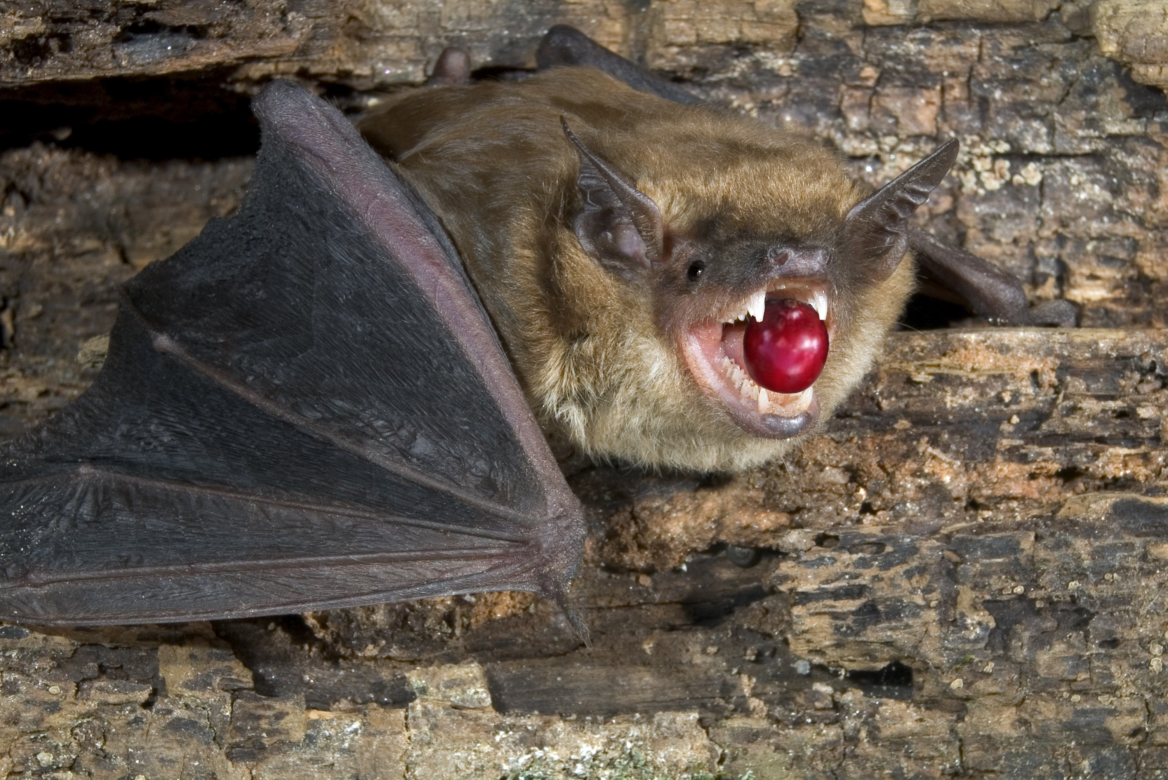
A bat biting a coffee cherry infusing it with its bat spit.
Bat spit coffee is a thing that exists, and it requires actual bats to get their actual spit into coffee cherries—and it’s super expensive! But is it good? Or is it the next kopi luwak?
As reported by the New York Times, bat spit coffee is a fairly recent phenomenon coming out of Madagascar, a country not traditionally known for any sort of high-end coffee production. After growing low-grade Robusta for years, some farmers switched crops to the Bourbon Pointu variety, a rare descendant of the Bourbon variety seen more often in cafes. The Bourbon Pointu alone was fetching a price of around $100 per pound. But let a bat make out with it for a little bit and that’ll get you a 10% jump in price.
Why bat spit coffee comes with the additional premium (other than novelty, which is the actual answer) isn’t entirely clear. The article states: “wild bats chewing on ripe coffee berries results in a reaction between their digestive fluids and outside air that gives a uniquely smooth flavour, say customers.” I’m not sure why the NYT is asking customers to give even a cursory explanation of what makes this coffee different, but sure. Should there be any actual qualitative difference between this and the non-bat-spitted version, the reason is something more familiar to those who know the origins of kopi luwak. Per the article, farmer and agricultural entrepreneur Jacques Ramarlah noticed bats “nibbling the best beans” from his Bourbon Pointu trees, which he presumably then collected and noted a taste difference.
And what is that taste difference? According to Ronald Van der Vaeken, a local Belgian hotelier, “Normal coffee, after two minutes, you forget the taste—but this coffee stays a very long time in your mouth. It’s not acidic… it’s very good.” That ever so slight hint of rabies really tingles the tongue, y’know.
It is at this point I would like to note that acidity is by no means a bad thing in coffee and in fact, it highly sought after by many, many coffee professionals and consumers alike.
To help increase production, Ramarlah is now working with 90 producers in the area who send them their beans for “processing and marketing.” He hopes to increase this year’s two-ton crop by an order of magnitude for 2021, allowing for some of the bat coffee to be exported out of the country, primarily to “discerning markets like Japan.” Currently, most of the coffee is purchased locally by high-end restaurants and hotels.
And for that sliver of the Venn Diagram who both wants to pay $110/pound for bat spit coffee and worries about contracting rabies from drinking said coffee, don’t worry, you’re probably fine? While bat bites are the most common source of rabies in humans, the disease requires direct transmission. So maybe just don’t rub raw bat spit coffee pulp in an open wound and you should be fine. Other than your desire to drink bat spit coffee, that’s definitely not fine.
Zac Cadwalader is the managing editor at Sprudge Media Network and a staff writer based in Dallas. Read more Zac Cadwalader on Sprudge.

